Business
Nigeria’s foreign exchange crisis: Airlines in focus
Published
2 years agoon
By
Marcel Okeke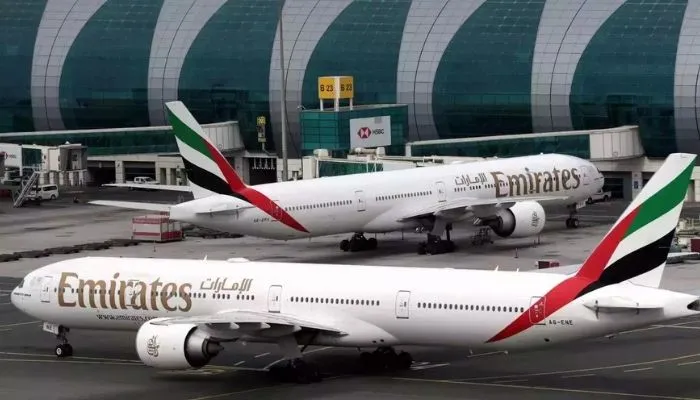
By Marcel Okeke
The multifaceted and unfathomable challenges posed by acute shortage of foreign exchange (hard currencies) in Nigeria are unfolding day by day. Today, according to a report, no fewer than 40 aircraft belonging to domestic airlines are currently grounded in maintenance facilities abroad and in Nigeria due to lack of access to foreign exchange (forex) from the Central Bank of Nigeria to pay the necessary bills. While over 30 airplanes are stranded overseas, about 10 others are grounded in Nigeria due to lack of forex to purchase some major spare parts from abroad.
Aside the grounded planes, some operators are unable to acquire new aircraft engines to replace old ones that have completed their life cycles due to acute dollar scarcity. Already, the ugly situation is worsening the lingering flight disruptions being experienced by passengers because of shortage of airplanes in the country. At present, the largest Nigerian carrier, Air Peace, has about 15 planes stranded abroad, Dana Air, Max Air, Azman Air, Arik Air, and other domestic carriers have over 25 airplanes currently grounded abroad and locally due to lack of forex. Operators are seeking forex to pay foreign aircraft maintenance facilities and acquire spare parts from abroad for the aircraft undergoing maintenance locally.
At the recent 2023 Annual Conference of the Nigerian Bar Association (NBA) in Abuja, Chairman of Air Peace, Allen Onyema, said the carrier spent over N78 billion on aircraft maintenance last year, adding that the airline currently has about 15 planes stranded abroad due to lack of forex. He said, “Air Peace has about US$14 million stranded in the Central Bank of Nigeria. It is not hidden. We also have about 15 aircraft stranded abroad. After, people will say Nigerian airlines lack capacity. They do not lack capacity; what they lack is truthful government support and ease of doing business.”
Managing Director, Dana Air, Jacky Hathiramani, on his part, said aside from Air Peace, other domestic carriers were battling with the problem of dollar scarcity too, adding that it was high time the Federal Government intervened to save the domestic airline industry. He said, “All domestic carriers are having challenge with forex. We have about four planes looking for forex from CBN for about two years and it’s about US$4 million. It needs to be known that many airlines have forex issues. The CBN needs to help the aviation industry, so that airlines can maintain their schedules.”
Indeed, practically all airlines operating in Nigeria have forex problem one way or another. For a couple of years now, Nigeria’s apex bank has been unable to meet the funds repatriation needs of foreign airlines operating in the country. The total amount of foreign airlines’ trapped funds in Nigeria has risen to US$812.2 million, according to the latest figure by the International Air Transport Association (IATA) in June 2023. This situation means that airlines are increasingly unable to repatriate their commercial revenues from Nigeria, thereby making it challenging for them to continue providing the critical connectivity that drives economic activity and job creation globally.
In the words of Willie Walsh, IATA Director-General, “Airlines cannot continue to offer services in markets where they are unable to repatriate the revenues arising from their commercial activities in those markets. Governments need to work with industry to resolve this situation so airlines can continue to provide the connectivity that is vital to driving economic activity and job creation.” Recent estimates by IATA reveal that the top five countries account for a whopping 68 per cent of blocked funds, comprising Nigeria (US$812.2 million), Bangladesh (US$214.1 million), Algeria (US$196.3 million), Pakistan (US$188.2 million), and Lebanon (US$141.2 million).
Against this backdrop, IATA has called on governments to ensure compliance with international agreements and treaty obligations that enable airlines to repatriate the funds arising from the sale of tickets, cargo space, and other activities. Failure to do that, according to IATA, might further jeopardize the stability, profitability, and continuity of the aviation industry. “Airlines cannot continue to offer services in markets where they are unable to repatriate the revenues arising from their commercial activities in those markets. Governments need to work with industry to resolve this situation so airlines can continue to provide the connectivity that is vital to driving economic activity and job creation,” said Willie Walsh, IATA’s Director General.
Meanwhile, the spokesperson for Airline Operators of Nigeria (AON) and Chairman of United Airlines Nigeria, Prof Obiora Okonkwo, is advocating for the CBN to create a special forex window to save the local airline industry. He said “Air tickets could cost as much as Two Hundred and Fifty Thousand Naira at the current exchange rate and cost of aviation fuel (JETA1). It is not to exploit passengers, but rather to ensure financial integrity of airlines which is another way of ensuring air safety.” Further lamenting the challenge facing operators, Okonkwo said, “You have naira and you can’t convert it to dollar. So, the solution to this is for our Minister to understand that we need a special window with the CBN to access foreign exchange.” This, as it were, is a call for the return of multiple exchange rates in Nigeria.
As the airlines and other operators in the aviation industry are crying for Government’s help to save their businesses from going under, entities in other sectors of the Nigerian economy are either leaving the country or ‘shrinking’ the scope of their businesses. It is all essentially because of the latest forex management style of the Government of the day. The massive devaluation of the Naira resulting from floatation of the local currency has put the finances of every business in ‘disarray.’ Even before now, the CBN has been dealing with lingering shortage of dollar, a challenge that has seen huge sums due to foreign companies ‘trapped’ at the apex bank. Half-year statements of most blue chips and multinationals listed on the Nigeria Exchange (NGX) Limited show that they have incurred ‘huge forex losses’ so far, in 2023.
Apparently due to this persisting scorching environment, the British pharmaceutical giant (GlaxoSmithKline, GSK) recently closed its Nigerian unit. The contagion has caught up with yet another blue chip—PZ Cussons—which is offering to “buy out” minority shareholders of PZ Cussons Nigeria. This is to make for the de-listing of the company from NGX amid “foreign exchange challenges” in the country. “The group believes the offer to be attractive for the minority shareholders of PZCN, particularly given the recent macroeconomic developments and foreign exchange challenges,” the company said in a statement.
PZ Cussons’ offer to the PZCN board is to acquire minority shareholders’ 26.73 per cent stake for 22.8 million pounds (US$28.7 million). The group said the funding for the transaction is expected to come from “existing naira cash balances.” It is not unlikely that this ‘exit bug’ will also sooner than expected catch up with other businesses in the land. Perhaps, this likelihood has informed the CBN’s hurried tinkering with its so-called Naira floatation: a policy that is fast sinking the Nigerian economy!
- Mr. Okeke, a practising Economist, Business Strategist, Sustainability expert and ex-Chief Economist of Zenith Bank Plc, is a National Daily Columnist. He can be reached via: [email protected]
You may like
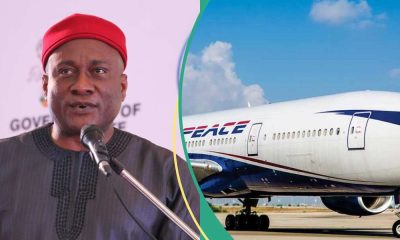

Foreign airlines using lower price to force Air Peace from Nigerian-London route–Onyema


Air Peace increases Lagos-London flight capacity amid high demand
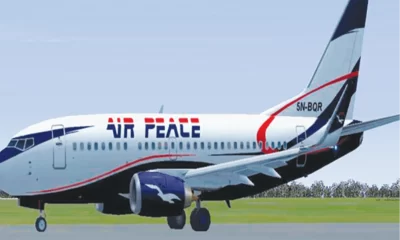

UAE grants Air Peace direct flight approval to Dubai


Onyeama is a true Nigerian patriot – Gov Uba Sani
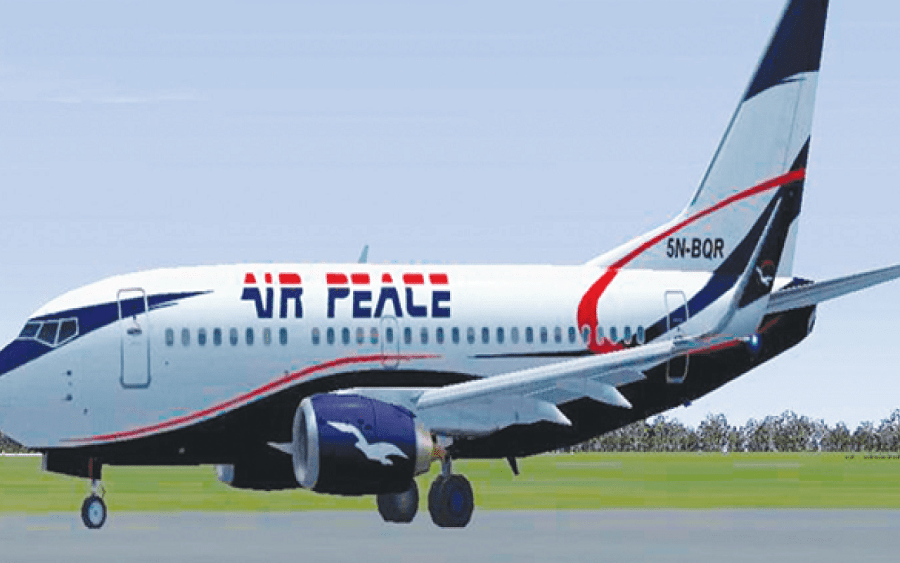

Air Peace relocates operations to newly inaugurated terminal
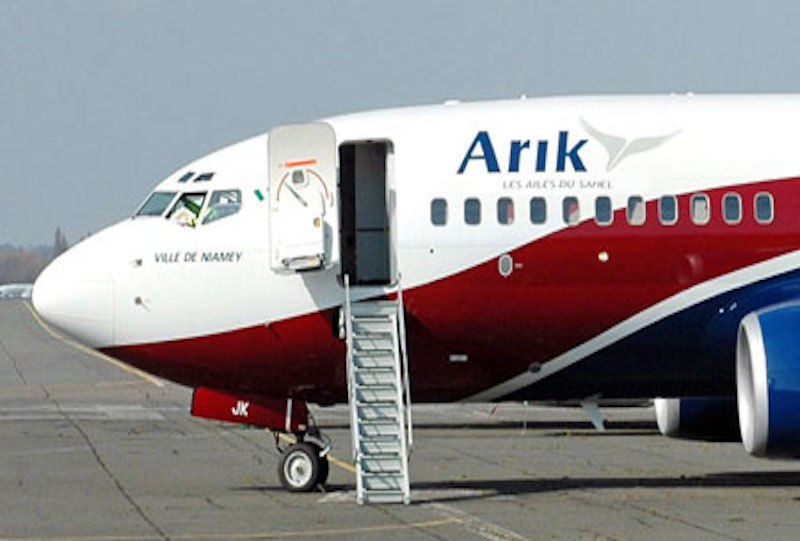

Court orders ARIK Air to pay sacked pilot $126,500 in 30 days
Trending

 Health5 days ago
Health5 days agoDeclassified CIA memo explored concealing mind-control drugs in vaccines

 Entertainment6 days ago
Entertainment6 days agoSimi addresses resurfaced 2012 tweets amid online backlash

 Crime5 days ago
Crime5 days agoSenior police officers faces retirement after Disu’s appointment as acting IGP

 Education7 days ago
Education7 days agoPeter Obi urges JAMB to address registration challenges ahead of exams

 Health7 days ago
Health7 days agoNAFDAC issues alert on suspected revalidated SMA Gold infant formula

 Comments and Issues6 days ago
Comments and Issues6 days ago20 Critical Fixes to Save Nigeria’s Democracy from Electoral Fraud

 Football6 days ago
Football6 days agoMartínez ruled out of Everton clash with calf injury

 Latest6 days ago
Latest6 days agoICPC yet to respond to El-Rufai’s bail request as arraignment date looms

